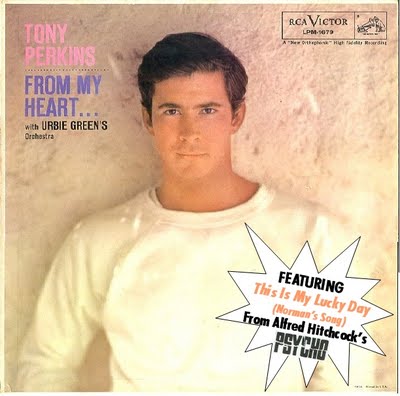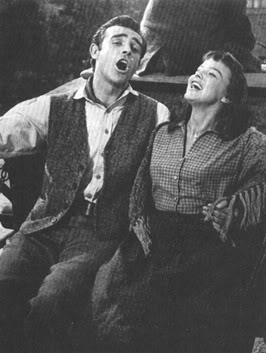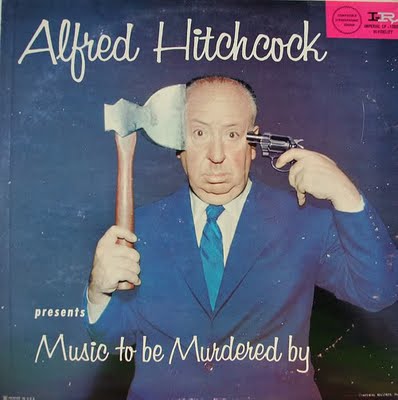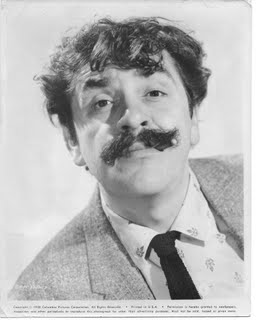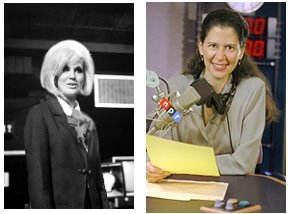When you think of Alfred Hitchcock, you don’t necessarily think top ten records.
But it happened in 1956, when the featured song from Hitch’s remake of The Man Who Knew Too Much – Doris Day’s Que Sera, Sera – scored box-office-boosting radio play by climbing the charts to reach #2 in the US and #1 in the UK. The melody and lyrics were written by Ray Evans and Jay Livingston, whose later work included the theme for the TV series Mr. Ed.
Hitch tried to duplicate his success with his next film, The Wrong Man (1956). But audience reaction to the Edie Adams/Ernie Kovacs duet was negative, so the song was cut and shelved.
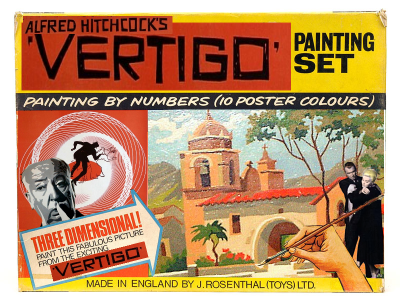 Determined to succeed, Hitchcock brought Billy Eckstine on board early in production on Vertigo (1958) to write the title tune. The scene as shot shows James Stewart taking Kim Novak to the Andar Pedo, a (fictitious) San Francisco Latin nightclub where Eckstine is performing. In the scene, Eckstine sees Stewart’s character and, with a wink as acknowledgment, says “This one goes out to my good friend, Scottie Ferguson.” Eckstine then performs the title song.
Determined to succeed, Hitchcock brought Billy Eckstine on board early in production on Vertigo (1958) to write the title tune. The scene as shot shows James Stewart taking Kim Novak to the Andar Pedo, a (fictitious) San Francisco Latin nightclub where Eckstine is performing. In the scene, Eckstine sees Stewart’s character and, with a wink as acknowledgment, says “This one goes out to my good friend, Scottie Ferguson.” Eckstine then performs the title song.
…but once again, Hitchcock ultimately decided not to use the musical interlude. (Hitchcock’s most famous marketing misstep, Vertigo Painting by Numbers, above, was featured in a previous Isn’t Life Terrible post).
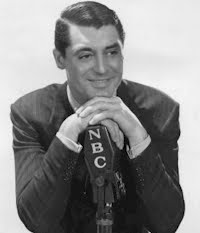 Next up was North By Northwest (1959). It was a classic Hitchcock scene: the bad guys chase Cary Grant into a radio studio, where he is mistaken for the Station ID announcer and hustled out on stage to wait for his cue. Cary sees the bad guys enter the studio and realizes that as long as he’s on stage, the bad guys won’t shoot him. He drags out the station ID as long as possible by singing it, then finally bolting off the stage. No real shot at the top ten for this little improvised “song,” but it shows Hitchcock was still thinking about the potential for musical interludes in his features.
Next up was North By Northwest (1959). It was a classic Hitchcock scene: the bad guys chase Cary Grant into a radio studio, where he is mistaken for the Station ID announcer and hustled out on stage to wait for his cue. Cary sees the bad guys enter the studio and realizes that as long as he’s on stage, the bad guys won’t shoot him. He drags out the station ID as long as possible by singing it, then finally bolting off the stage. No real shot at the top ten for this little improvised “song,” but it shows Hitchcock was still thinking about the potential for musical interludes in his features.
Hitchcock tried for the top ten again again with Psycho (1960).
Anthony Perkins’ recording of This Is My Lucky Day (Norman’s Theme) from Psycho never got close to the top 200.
Part of the failure doubtlessly had to do with the fact that the song, originally slated to accompany the infamous “peep-hole’ scene, was cut from the soundtrack.
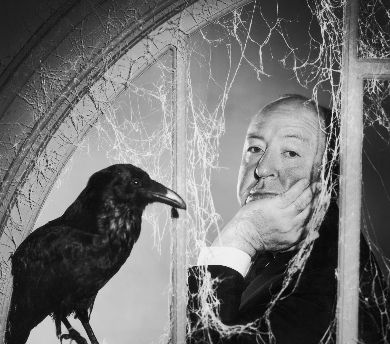
The theme for Hitchcock’s next feature, Tomorrow Never Knows (Love Theme from Alfred Hitchcock’s ‘The Birds’), was eventually recorded by The Beatles, but not released until 1966, three years after the film’s theatrical run.
However, with his next film, Marnie (1964), Hitch was positive he had another hit song on his hands.
He based his positive thoughts on Sean Connery’s testosterone-fueled performance of Pretty Irish Girl in Disney’s Darby O’Gill and the Little People (1959). Hitch initially believed there was no reason his male lead couldn’t handle the recording chores on Marnie. But when Hitchcock learned that Connery’s singing voice in Darby had been dubbed by Brendan O’Dowda, he quickly switched gears and convinced Nat King Cole to record the ballad based on Bernard Hermann’s movie theme.
Capitol Records released Nat King Cole’s Marnie track as a single. It stiffed. Perhaps listeners couldn’t relate to a love song dedicated to the title character of Marnie, a congenital liar and compulsive thief who is blackmailed into marrying Sean Connery.
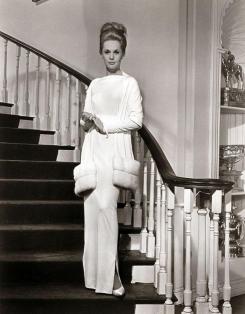 In test footage, Connery lip-synched Cole’s performance, but it didn’t click. Nat Cole went back to the studio and did his best to sing Vertigo with a Scottish accent, but this was even worse. The song was cut from the film.
In test footage, Connery lip-synched Cole’s performance, but it didn’t click. Nat Cole went back to the studio and did his best to sing Vertigo with a Scottish accent, but this was even worse. The song was cut from the film.
Pity, too: check out these lyrics:
But your world is lonely
Marnie Oh, Marnie
So lost yet so lovely
Take my hand
And stay with me awhile
Let me try to dry
The tears beneath your smile
Only love can save you Marnie…
At this point, Hitchcock gave up on getting another hit song out of a movie, and took things into his own hands.
_03-711847.jpg)
